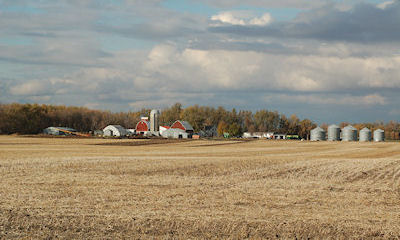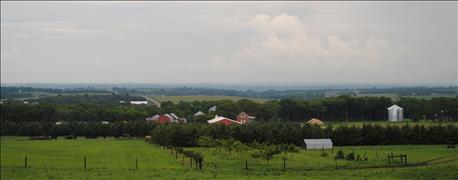March 15, 2016

An experienced cash crop farmer in Michigan’s Upper Peninsula agreed to provide some thoughts on what it takes to be successful with cash crops in the U.P. This farmer’s comments were shared anonymously during a recent farmer panel discussion at the Michigan State University Extension Agriculture for Tomorrow Conference in Escanaba. After reviewing them, I felt they were too good to use only once and, with the farmer’s permission, want to offer them for your consideration.

U.P. farmer draws on lifetime experience
My thoughts are directed to newly entering or young farmers that have smaller operations. You ask “What works, what hasn’t and why?” There are too many variables in soils, farm location, farm facilities and individual educational and work backgrounds for there to be a meaningful cookie-cutter template on what will make a farm operation a success. And what does success look like, anyway? That being said, I will attempt to list some principles that have worked for me.
Educate yourself
I cannot envision any other occupation that requires more different skill sets than being a farmer. Becoming knowledgeable in crops, soils and possibly animal husbandry may seem adequate, but it is only a beginning. It is necessary and maybe essential to survival to learn to be competent in many other fields including welding and fabrication, machine repair including major overhauls, carpentry and structures, masonry, electrical and plumbing, and most important: marketing! There is a lifetime of learning here and starting with assistance from MSU Extension and other land grant universities is a first step. Then, expand to gain a worldwide view with the Internet. To minimize poor outcomes, research everything before taking the first step into a new venture.
Experiment
Try new things, whether a new product or crop, and keep records. Do small demonstrations and be objective about the results. There is no value in kidding yourself or others. Avoid making any important decisions based on testimonials. People see what they want to see. Look for information that is based on university trials/experimental design, hopefully supported by peer review.
Marketing for profit
This is a business that exists to make a profit. Breaking even or farming at a loss is a waste of time and personal resources that resembles an expensive hobby.
To achieve consistent profitability year-after-year, certain rules apply:
•Always know your cost of production and use conservative yield goals/prices on returns.
•Whatever product or commodity is being offered into trade, make sure to add quality and value and sell as close to the final consumer or user as possible. Selling bulk wholesale is easier, but generally a losing or, at best, a breakeven marketing scheme over time.
•Always remember that you’re running a business. If your direct marketing enterprise is working well, keep quiet about it. It is not in your interest to invite competition. An exception to this might be if the publicity generated by a press article or farm tour improves your marketing prospects.
Know the limitations
This is the Upper Peninsula, and trying to raise crops not adapted to our climate can be extremely risky and potentially a threat to the farm’s survival. Know your soils and their potential, as well as their limitations. Pay attention to microclimate differences maybe only a few miles apart.
Be aware of your marketing area and customer base and whether it can absorb all that you produce. It may be necessary to market outside of the U.P., which raises new logistics problems and competitors.
What I know now that I wish I had done earlier
If there is one management tool I wish I had incorporated years earlier, it is adopting no-till planting. I have been using it for approximately 10 years on our well-drained soils and it has been a true game-changer on our farm. The managing of organic matter is proving to be an important soil improvement technique in raising cation exchange capacity and water holding ability. No-till planting has fostered a systems-thinking approach to crop production.
Get involved
Invest some time in getting involved with farm-related organizations and especially work cooperatively with MSU Extension. Your input and support is needed to help determine the direction of agriculture in the U.P., especially at a time when farmers like me are looking at the end game. New energy and commitment is very much needed.
Isleib writes for Michigan State University Extension
You May Also Like




